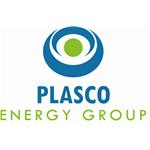Plasco Energy Group

Plasco Energy Group Inc. (Plasco) was formed on April 29th 2005 with the amalgamation of long-time player in the plasma gasification field, RCL Plasma, and its majority owned sister company Plasco Energy Corporation. Plasco (RCL) was founded in 1974 for the purpose of applying plasma technology for materials testing. In the early 1980s, the focus was changed to apply plasma gasification to all types of waste remediation.
Plasco has developed an environmentally friendly waste treatment process as a new generation approach to the consistent and ever growing problem of residential, commercial, industrial and institutional waste. The process is readily adaptable to make the utilization of problematic fuels environmentally friendly. A primary objective during the development was the protection of the environment through the rejuvenation of natural resources already environmentally damaged and the prevention of similar environmental contamination in the future.
Plascos patented plasma gasification process can safely and effectively dispose of a very wide range of waste materials, including municipal solid waste (MSW), biomedical waste and industrial hazardous wastes. The products of plasma gasification a clean, combustible product gas, heat and an inert slag - are themselves commercial products.
Company Details
Company Information
Christopher M. Gay
Title:
Vice President
Telephone:
(613) 591-9438
Email:
Click Here
Products
Environmental Products And Services
Plasma Gasification.
Plasma gasification is a non-incineration thermal process which uses extremely high temperatures in an oxygen free/starved environment to completely decompose input waste material into very simple molecules. The extreme heat and lack of oxygen results in pyrolysis of the input waste material (pyrolysis being the decomposition of matter in the absence of oxygen). Plasma gasification operates as close to pure pyrolysis as possible, as opposed to starved air pyrolysis which is common with incineration type solutions. The by-products are normally a combustible gas and an inert slag. Cyclone/scrubber effluents can normally be recycled for additional processing.
Plasma gasification produces particular advantages for the protection of air, soil and water resources through extremely low limits of air emissions and leachate toxicity. Air emissions are orders of magnitude below current regulations or Canadian Council of Ministers of the Environment (CCME) guidelines. The slag is monolithic with leachate results orders of magnitude below environmental protection toxicity standards currently in Ontario and Qubec regulations. Slag weight and volume reduction ratios are normally very large, i.e. with biomedical waste they are 9:1 and 400:1 respectively.
Plasma gasification offers particular advantage for the processing of industrial hazardous waste materials since it can handle any liquid, solid or gaseous waste material in any combination and still achieve the same optimum Destruction Removal Efficiency (DRE). The very intense processing temperature environment ensures all hazardous molecules are completely broken down without opportunity for recombination. Typical DRE results with a 50% chlorine concentration PCB oil solution were in excess of seven nines. Similar DRE test results were achieved with a 96% pure BHC insecticide (lindane) at full concentration.
Resorption Canada Limited has developed a computer based chemical simulator for their plasma gasification process which provides very rapid confirmation of process characteristics and efficiency with any input waste stream. This simulator has now been complimented with an additional simulator tool to plot temperature and velocity profiles within reactor vessel designs to confirm most efficient heat transfer characteristics.
Services